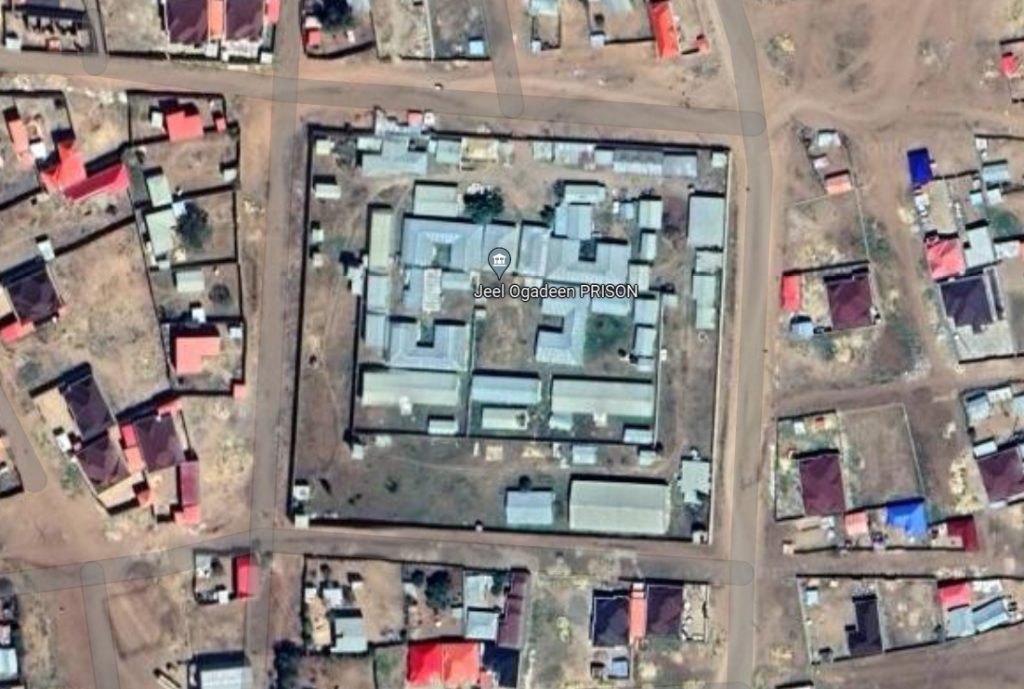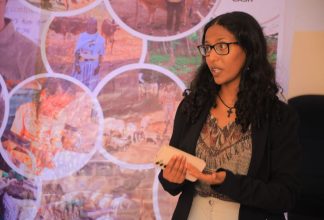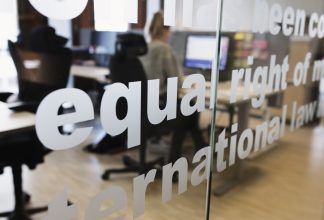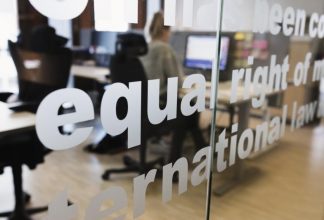He survived Jail Ogaden: “We still need justice”

In 2018, the notorious Ethiopian Jail Ogaden closed following numerous reports of severe human rights abuses. But the deep wounds of its victims remain. Ahmed Ibrahim, activist and former prisoner of Jail Ogaden, decided to dedicate his life to bringing redress to the former prisoners and to help them rebuild their lives after the horrors of the prison.
“We needed to seek our rights because of what we had been through. We saw an opportunity to bring justice, not only to us but all victims and survivors.”
The Somali region of Ethiopia has a long history of human rights violations committed against the Somali minority population. Many Somali prisoners in the region were detained on arbitrary or political grounds and sent to Jail Ogaden, a prison notorious for committing severe human rights violations, including sexual violence, torture, and murder.
“We were all imprisoned in Jail Ogaden under horrific conditions and tortured on a regular basis,” says Ahmed Ibrahim, who works for Organization of Victims and Survivors (OVS), an organisation working for the rights of the victims and survivors of Jail Ogaden and Bayahow prison.
“We were all imprisoned in Jail Ogaden under horrific conditions and tortured on a regular basis.”
The prison was subject to heavy criticism both nationally and internationally, and with a new political leadership in the country and the region, Jail Ogaden was finally closed in late 2018. However, the arbitrary confinement did not stop there. Eight hundred prisoners were taken to Bayahow. There, the prisoners faced more abuse and were forced to build houses under slave-like conditions.
“They had us build houses, although most of us were sick and weakened by the unhygienic conditions and frequent torture at Jail Ogaden,’ says Ahmed Ibrahim.
Today, both institutions are closed.
They wanted one thing
When the two prisons closed, Ibrahim and other former prisoners started OVS (then called Association for Somali Region Victims and Survivors). They saw the need to obtain justice, not only for them but for all victims and survivors of torture.
“We did not know anything about running a civil society organisation, and none of us has an academic background in the human rights sector. We only wanted justice.”
Ibrahim and his colleagues started advocating and raising awareness about the horrific abuse they had endured. Thanks to the help from other organisations like Civil Rights Defenders, they have learnt how to operate their daily business, do advocacy work and draft reports. They published the report, “Jail Ogaden, the aftermath of Jail Ogaden”, documenting the human rights abuses. It gained a lot of attention.
“We did not know anything about running a civil society organisation, and none of us has an academic background in the human rights sector. We only wanted justice.”
Thanks to their efforts, OVS eventually met with the president of the Somali region, Mustafa Mohammed Omar. The meeting with the president prompted the association to be able to register formally as an organisation and further the advocacy.
“Our advocacy contributed to the creation of the Truth and Reconciliation Commission, which now works to investigate the human rights violations in Jail Ogaden and Bayahow.”
“Another thing to come out of our advocacy is that we established the 6th of April to commemorate and remember the victims of Jail Ogaden and Bayahow,” Ahmed Ibrahim says.
Successful – but one goal remains
Although the association has been able to reach the highest office in the region, working with advocacy in a repressive environment is a challenge.
“Many of the police and intelligence officers we meet in our line of work were our perpetrators in both Jail Ogaden and Bayahow. They do not like us seeking justice because they are afraid to be implicated,” Ahmed Ibrahim says.
There are many challenges, but Ibrahim believes the future is bright for OVS. The organisation wants to expand their work to spread the idea of transitional justice to other regions in Ethiopia. They have seen that the issue of obtaining justice after human rights abuses not only affects the Somali region.
“For the coming ten years, we want to work in other regions to help people get justice and achieve sustainable peace by implementing values of human rights and democracy.”
But, they have yet to achieve their initial goal fully. They still call for a more comprehensive rehabilitation program and compensation for victims and survivors. And they have not received any formal apology or accountability from the government for the abuses in Jail Ogaden or Bayahow.
‘’We still need true justice,’ says Ahmed Ibrahim.
What we do
The Organization of Victims and Survivors is a partner to Civil Rights Defenders and has received help building their capacity as a new organisation. Recently OVS collaborated with Civil Rights Defenders to document mass graves in seven different zones in the Somali region. The documentation was later the foundation for a report presented to the Truth and Reconciliation Commission as evidence of grave human rights violations. The investigation is ongoing.


